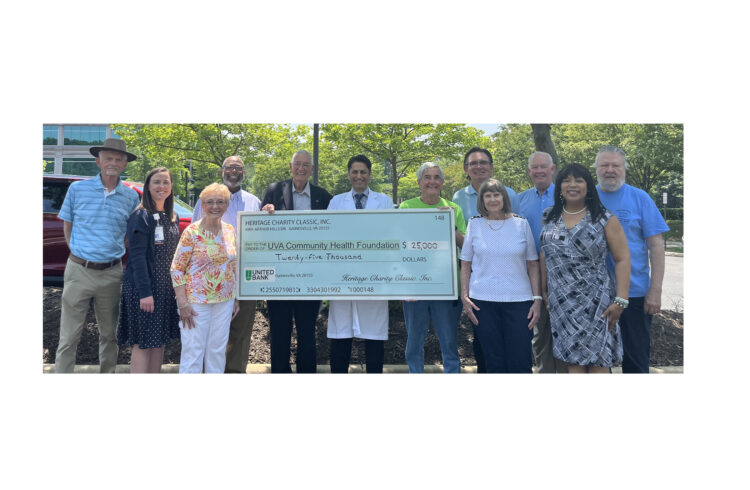
CHARLOTTESVILLE, Va. — A new DNA-based prenatal blood test that can strikingly reduce the number of risky diagnostic procedures needed to identify a pregnancy with Down syndrome is ready to be introduced into clinical practice. The test can be offered as early as 10 weeks of pregnancy to women who have been identified as being at high risk for Down syndrome.
These are the results of an international, multicenter study published online today in the journal Genetics in Medicine . The study, the largest and most comprehensive done to date, examined almost 1,700 pregnancies at high risk of chromosomal abnormalities, 212 of which were affected by Down syndrome.
The University of Virginia Health System was one of 27 international enrollment centers that participated in the study. Study leaders were Jacob Canick, PhD, and Glenn Palomaki, PhD, of the Women & Infants Hospital and The Warren Alpert Medical School of Brown University.
“This represents a significant step in identifying pregnancies affected by fetal Down syndrome,” said Devereux N. Saller , Jr., MS, MD, professor of obstetrics and gynecology in the UVA School of Medicine who led the UVA study site.
“The new DNA test potentially will allow patients to be reassured that they are carrying an unaffected pregnancy without an invasive diagnostic test. And this research clearly illustrates the importance of genetic counseling as the choices and complexity of prenatal screening increases,” Saller said. “We were pleased to have the opportunity to participate with such a prestigious group in such an important study.”
The test identified 98.6% of the Down syndrome pregnancies, while only 0.2% of the normal pregnancies were mistakenly called positive. The test rarely failed to provide a clinical interpretation (0.8%). These findings, along with the detailed information learned from testing such a large number of samples, demonstrate that the new test will be highly effective when offered to women considering invasive testing.
“With current screening methods, about one in every 30 women offered a follow-up invasive diagnostic procedure – amniocentesis or chorionic villus sampling (CVS) – will be found to have a pregnancy with Down syndrome. We expect the DNA-based test to more accurately determine which women should be offered invasive diagnostic testing. As a result, most of the pregnancies referred for amniocentesis or CVS will be found to have Down syndrome,” said Canick.
Palomaki added, “If this new test is used as we’ve described, nearly all women with a normal pregnancy could avoid an invasive diagnostic procedure and its associated anxiety, cost, and potential for fetal loss.”
Down syndrome, also called trisomy 21, is a chromosomal disorder that includes mental retardation, characteristic facial features, and, often, heart defects and affects one in about 600 babies born each year. Down syndrome occurs when each cell in an individual has three rather than the usual two copies of chromosome number 21. Current prenatal screening tests for Down syndrome combine maternal age with information from the measurement of maternal serum markers and ultrasound markers in the first and second trimesters of pregnancy. While these tests can detect up to 90% of Down syndrome cases, they also incorrectly identify 2% to 5% of normal pregnancies as positive. The new DNA-based test will reduce this “false positive” rate while maintaining the detection rate.
“Prenatal screening and diagnosis of Down syndrome has been part of routine prenatal care for decades, and it is estimated nearly two-thirds of all pregnant women in the United States are currently screened,” said Dr. Canick. “It is possible that with the availability of this new DNA-based test, more women will opt for screening because of the increased safety resulting from far fewer amniocentesis and CVS procedures being performed.” The U.S. Centers for Disease Control and Prevention estimated in 1995 that about one in every 200 invasive diagnostic procedures will cause a pregnancy miscarriage.


